Today, the 17th October, 2013 marks yet another important day in the history of Anglican Diocese of Cape Coast, Anglican Churches in Ghana and Philip Quaque boys and Girls primary and junior High schools (both in Cape Coast, central region, Ghana).
One may ask why is it so important to celebrate this day? Thus, one in a million question to ask. Let me not bore you with too many grammar. Here is the hero;
Who is Rev. Philip Quaque?
Philip Quaque (1741 to 1816), sometimes referred to as Philip Quacoe, a pioneering educator and evangelist, was the first African Anglican missionary in the Gold Coast.
He was the son of Birempon Cudjoe, a successful caboceer (chief) of Cape Coast, and was educated by the Rev. Thomas Thompson, the first missionary from the Society for the Propagation of the Gospel (S.P.G.), who arrived in the Gold Coast in 1752. He opened a school in Cape Coast (formally called Government Boys School, now Philip Quaque Boys School and Philip Quaque Girls School) for the town’s children, and since he wanted to train teachers for his school, he sent Philip Quaque, Thomas Cobbers, and William Cudjoe to England in 1754 to be educated.
It is known, however, that he was ordained in London in 1765, married an educated English girl, Catherine Blunt, in the same year, and in February 1766 returned with his wife to the Gold Coast as a “Missionary Catechist and Schoolmaster to the Negroes…with a salary of £50 per annum.”
What did he do for Ghana?
After visiting Anomabu, he decided to open a small private school for mulatto children in his own room in Cape Coast Castle. The only black children who might also have attended this school from the outside were probably children of wealthy Africans. The pattern of education was based on the English charity school system of Islington. Quaque gave religious instruction and taught reading and writing; arithmetic was taught only when the children could read very well.
The Cape Coast school aimed at training clerks for the “Public Office.” By 1797 there were three African “writers” working for the Committee of Merchants in the Cape Coast, and these are believed to have passed through Quaque’s School. The school was maintained jointly by the Committee of Merchants and the S.P.G. through its committee in London. Later, responsibility for the maintenance of the school was entrusted to a local educational authority called the Torridzonian Society which was formed in the Cape Coast in 1787, and to which Quaque belonged. The main aim of this society was to improve the school and transform it into a good boarding school. Under the society’s direction, the school became the first on the Gold Coast to introduce school uniforms for its pupils.
Quaque sent more than fifty letters to London and North America reporting on his successes and failures, his relationships with European and African authorities, and his observations on the effects of the American and French revolutions on Africa. The regular references to his African mission in popular magazines made Quaque well known in the English-speaking world. Initially writing when the transatlantic slave trade went largely unquestioned, Quaque in his later letters traces the period of abolitionist fervor leading up to the ban in 1808. Although his employers supported and facilitated slavery, Quaque’s letters reveal his evolving opposition to both slavery and the slave trade, particularly in his correspondence with early abolitionists.
Quaque’s life offers a fascinating perspective on transatlantic identity, missionary activity, precolonial European involvement in Africa, the early abolition movement, and Cape Coast society.
Challenges in his Missionary Work
Rev. philip Quaque like any other hero has his own challenges regardless of his massive impact in education and Christian faith in Cape Coast, Ghana.
After his stay in England, Philip could no longer speak Fante, but had to speak through an interpreter. He was therefore isolated from his people. His marriage to an English lady was a source of friction with his relatives. His foreign ideas, furthermore, also led him to oppose the wishes of relatives of whom he had, in any case, a poor opinion. His relationship with the authorities in the Castle was also poor. The Castle was indifferent to his ministry, and his church services were infrequently held, either at the arrival of a visitor or the absence of the governor or the officers being enough to cause cancellation of a service. There were occasions when officers or governors openly ridiculed religion, and made nonsense of the work being done by him in both the church and the school. The color of his skin was also sometimes a disadvantage. There were, for example, certain officers who refused to attend services because they were being conducted by a “blackman.”
His legacy today in Cape Coast
He was the founder of first elementary school
Rev. Philip Quaque has been named after the first school in Ghana (he established it in the early days in Cape Coast Castle), Government Boys school (Now Philip Quaque Boys and Girls School) and Parish in the Anglican Diocese of Cape Coast, Rev. Philip Quaque Anglican Church, Adisadel and many other residences in Cape Coast. He has also been named after a house in Adisadel College (Quaque House) in Cape Coast.
Today is he been celebrated for education, christian faith, the Anglican communion in Ghana and the propagation of the Gospel in Ghana. This is a called to all old boys and girls to come to their school and contribute to the educational development of current crop of children in the school.
When the name Government Boys school is mentioned, names like Rt. Hon. Ebenezer Bekyina Sekyi-Hughes (was the Speaker of the Ghanaian parliament between 2005 and 2009), Nana Ato Dadzie (former Chief of Staff under ex-President Jerry John Rawlings regime ) and many others can not be left out. They all pass through this great school. But today the school is at the verge of losing it historic cradle in terms of academic records and infrastructural development. You wished to have seen some pictures but wait a minute, do we have to wait till the school’s structure is ruined down and the poor academic performance of students hit the skies before we step in to help?
I think we can do better than this. Please walk to the school and see things yourself. It does not befit the “status quo” as the first school in Ghana. I believe by now a lot of Ghanaian have it in mind that Mfantsipim is the first school in Ghana, hmmmm, I don’t blame you if you happen to be a victim of such gross misrepresentation of information but let’s make no mistake, Mfantsipim is the first secondary school and not the
first elementary school in Ghana. A piece of advise; see Mr. Richard Atta Mensah (current Headmaster of Philip Quaque boys Schools) for more update.
The Present and Future of Philip Quaque Boys School (formally Government Boys School)
Coming soon…
REFERENCES
- Debrunner, Hans. W., A History of Christianity in Ghana, Accra 1967.
- F. L. Bartels, “Philip Quaque 1741-1816,” in Transactions of the Gold Coast and Togoland Historical Society, Vol. 1, Part V, Achimota, 1955;
- H. W. Debrunner, A History of Christianity in Ghana, Accra, 1967;
- I. S. Ephson, Gallery of Gold Coast Celebrities, Accra, 1969;
- C. F. Pascoe, Two Hundred Years of the S.P.G., 2 vols., London, 1901;
- Ralph M. Wiltgen, Gold Coast Mission History, 1471-1880, Techny, Illinois, 1956.
- Carretta, Reese, Vincent, Ty M. (2010). The Life and Letters of Philip Quaque, the First African Anglican Missionary By Carretta, Ty M. Reese. Athens, Georgia: University of Georgia Press. ISBN 13: 978-0-8203-3319-9
- “Philip Quaque (Born 1741-Died 1816) As a pioneer missionary”, in Magnus J. Sampson, Gold Coast Men of Affairs (Past and Present), with an Introduction by J. B. Danquah, London: Dawsons of Pall Mall, 1937; 1969 reprint, pp. 194-202.

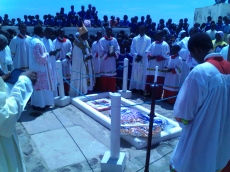
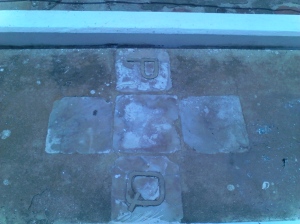
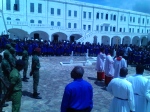

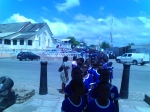
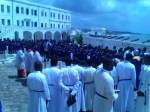
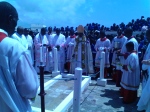
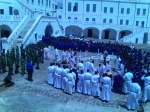
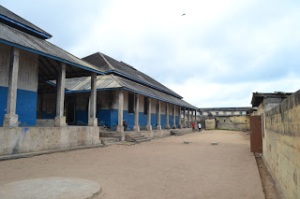
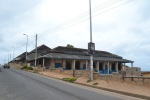
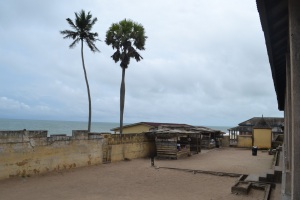
Leave a comment